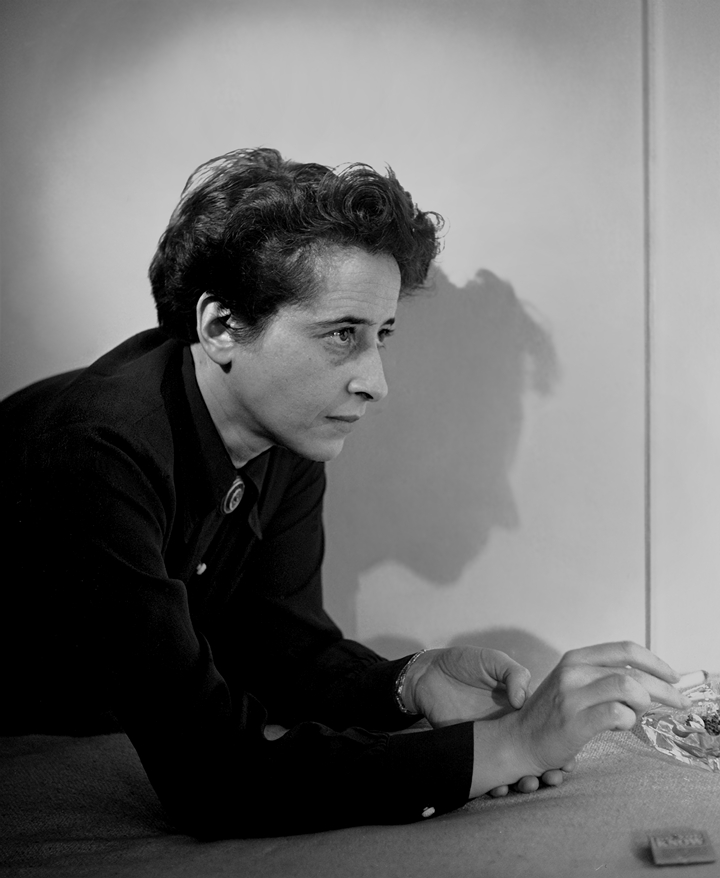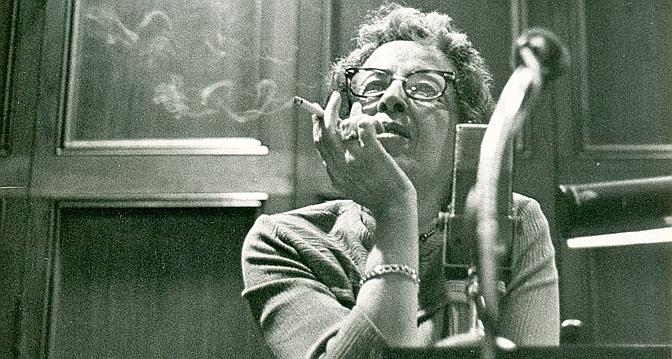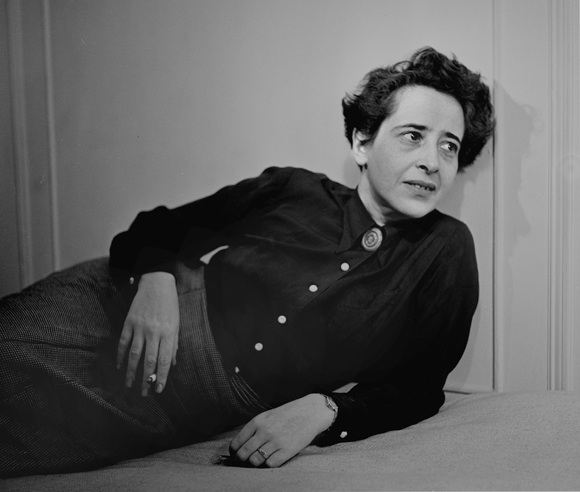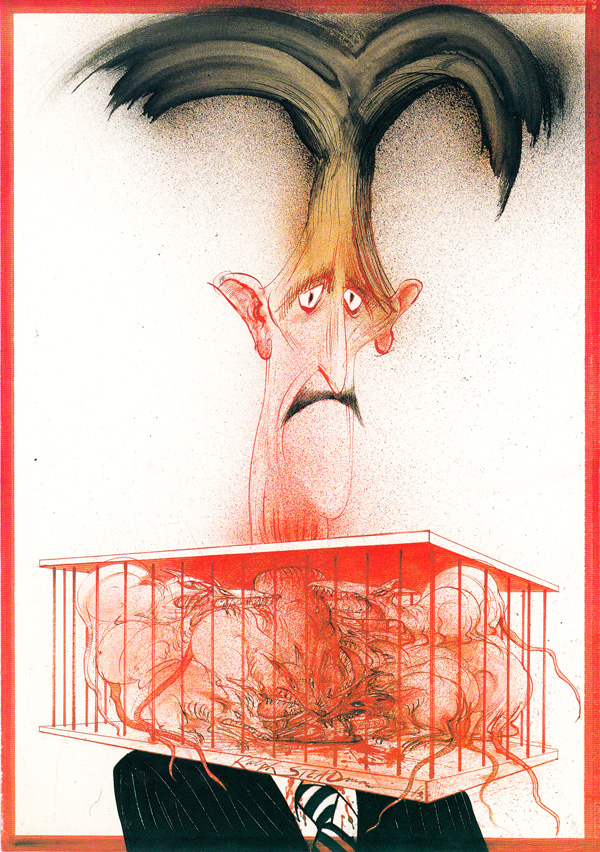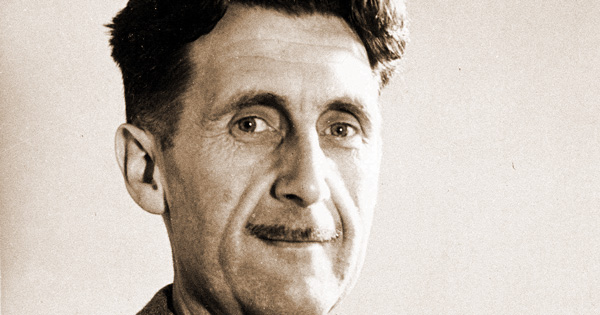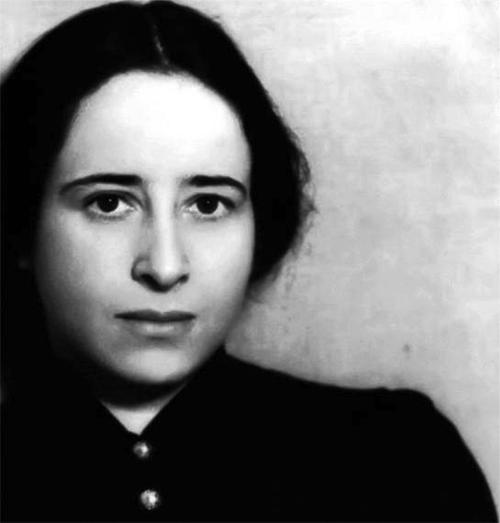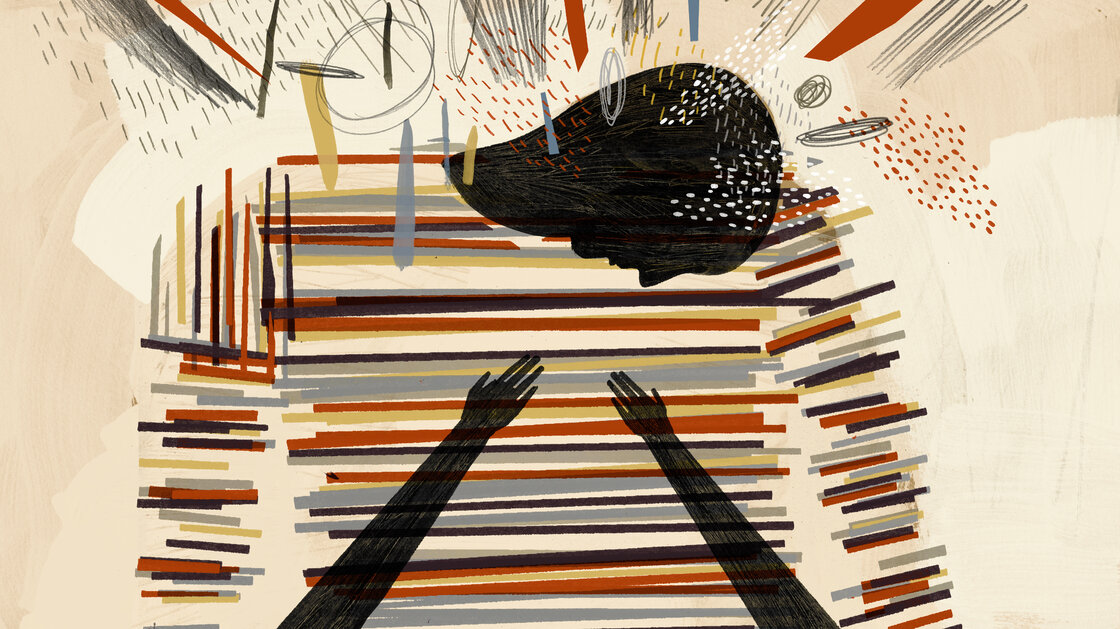Nobel-Winning Playwright Eugene O'Neill on Happiness, Hard Work, and Success in a Letter to His Unmotivated Young Son
 By the time he was fifty, playwright Eugene O'Neill had just about every imaginable cultural accolade under his belt, including three Pulitzers and a Nobel Prize. But the very tools that ensured his professional success – dogged dedication to his work, an ability to block out any distraction, razor-sharp focus on his creative priorities – rendered his personal life on the losing side of a tradeoff. Thrice married, he fathered three children with his first two wives. His youngest son, Shane, was a sweet yet troubled boy who worshipped his father but failed to live up to his own potential.
By the time he was fifty, playwright Eugene O'Neill had just about every imaginable cultural accolade under his belt, including three Pulitzers and a Nobel Prize. But the very tools that ensured his professional success – dogged dedication to his work, an ability to block out any distraction, razor-sharp focus on his creative priorities – rendered his personal life on the losing side of a tradeoff. Thrice married, he fathered three children with his first two wives. His youngest son, Shane, was a sweet yet troubled boy who worshipped his father but failed to live up to his own potential.In the summer of 1939, as O'Neill completed his acclaimed play The Iceman Cometh, Shane was expelled from yet another school. Frustrated with the boy's track record of such dismissals over the course of his academic career, O'Neill sent his 19-year-old son a magnificent letter epitomizing tough love, found in Posterity: Letters of Great Americans to Their Children (public library) – the wonderful anthology that gave us Albert Einstein's advice to his son on the secret to learning anything, Sherwood Anderson on the key to the creative life, Benjamin Rush on travel and life, Lincoln Steffens on the power of not-knowing, and some of history's greatest motherly advice. While heavy on the love, O'Neill's letter is also unflinchingly honest in its hard truths about life, success, and the key to personal fulfillment.
O'Neill doesn't take long to cut to the idea that an education is something one claims, not something one gets. With stern sensitivity, he issues an admonition that would exasperate the archetypal millennial (that archetype being, of course, merely another limiting stereotype) and writes:
All I know is that if you want to get anywhere with it, or with anything else, you have got to adopt an entirely different attitude from the one you have had toward getting an education. In plain words, you’ve got to make up your mind to study whatever you undertake, and concentrate your mind on it, and really work at it. This isn’t wisdom. Any damned fool in the world knows it’s true, whether it’s a question of raising horses or writing plays. You simply have to face the prospect of starting at the bottom and spending years learning how to do it.
O'Neill's son seems to suffer from Fairy Godmother Syndrome – the same pathology afflicting many young people today, from aspiring musicians clamoring to be on nationally televised talent competitions that would miraculously "make" their career to online creators nursing hopes of being "discovered" with a generous nod from an established internet goddess or god. O'Neill captures this in a beautiful lament:
The trouble with you, I think, is you are still too dependent on others. You expect too much from outside you and demand too little of yourself. You hope everything will be made smooth and easy for you by someone else. Well, it’s coming to the point where you are old enough, and have been around enough, to see that this will get you exactly nowhere. You will be what you make yourself and you have got to do that job absolutely alone and on your own, whether you’re in school or holding down a job.
O'Neill points to finding one's purpose, and the inevitable work ethic it requires, as the surest way to attain fulfillment in life:
The best I can do is to try to encourage you to work hard at something you really want to do and have the ability to do. Because any fool knows that to work hard at something you want to accomplish is the only way to be happy. But beyond that it is entirely up to you. You’ve got to do for yourself all the seeking and finding concerned with what you want to do. Anyone but yourself is useless to you there.
[...]What I am trying to get firmly planted in your mind is this: In the really important decisions of life, others cannot help you. No matter how much they would like to. You must rely on yourself. That is the fate of each one of us. It can’t be changed. It just is like that. And you are old enough to understand this now.And that’s all of that. It isn’t much help in a practical advice way, but in another way it might be. At least, I hope so.
Toward the end of the letter, O'Neill makes a sidewise remark that might well be his most piercing and universally valuable piece of wisdom:
I’m glad to know of your doing so much reading and that you’re becoming interested in Shakespeare. If you really like and understand his work, you will have something no one can ever take from you.
Complement Posterity with more enduring fatherly wisdom on life, including Ted Hughes on nurturing one's eternal inner child, F. Scott Fitzgerald on what is worth worrying about in life, Charles Dickens oncultivating kindness, and Jackson Pollock on falling in love, then revisit Anton Chekhov – whose sensibility O'Neill's is often likened to – on the eight qualities of cultured people in a letter of advice to his younger brother.


 All I know is that if you want to get anywhere with it, or with anything else, you have got to adopt an entirely different attitude from the one you have had toward getting an education. In plain words, you’ve got to make up your mind to study whatever you undertake, and concentrate your mind on it, and really work at it. This isn’t wisdom. Any damned fool in the world knows it’s true, whether it’s a question of raising horses or writing plays. You simply have to face the prospect of starting at the bottom and spending years learning how to do it.
All I know is that if you want to get anywhere with it, or with anything else, you have got to adopt an entirely different attitude from the one you have had toward getting an education. In plain words, you’ve got to make up your mind to study whatever you undertake, and concentrate your mind on it, and really work at it. This isn’t wisdom. Any damned fool in the world knows it’s true, whether it’s a question of raising horses or writing plays. You simply have to face the prospect of starting at the bottom and spending years learning how to do it.







